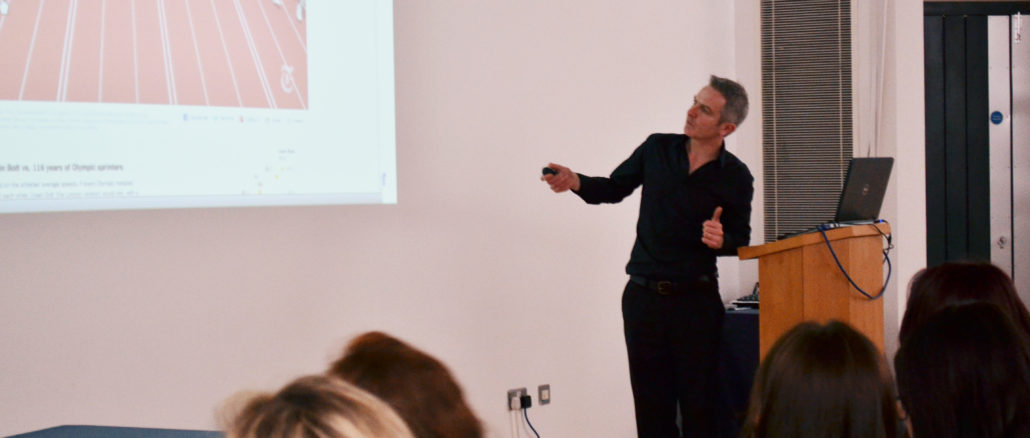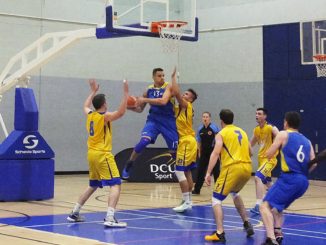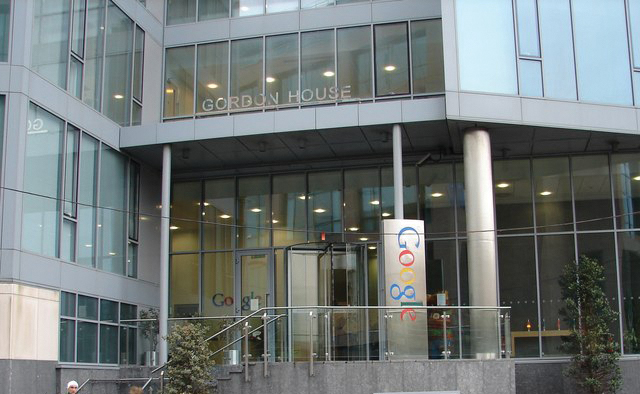
Stories like the ‘NSA files: Decoded’ are the leading edge of journalism and are currently at the top of very best practice according to the Editor of The Observer, John Mulholland.
“In terms of a story that was as big and as significant as the Snowden story from an organisation that’s as big and significant as The Guardian then those two things combined mean that something like ‘Decoded’ is currently at the apex of how you can tell those stories,” he said.
The Editor of The Observer talked about how digital platforms and technology have changed journalism and how it can be used to the journalists’ advantage.
“You can use that technology to your advantage and although you are under more pressure to deliver for different kinds of platforms, sometimes the answers come back quicker via those very platforms so it may well be that if you’re covering a protest in Turkey you see a tweet from the Turkish Ministry of Defence hours earlier than you would do if you were trying to get hold of somebody in the Turkish Defence Ministry on the telephone.”
“When I was a young journalist an organisation like The Guardian or The Observer wasn’t live and anything we printed was probably 24 hours old at least.
“Digital journalism wasn’t around and journalism operated in silos,” he said, “you were either a radio journalist or a print journalist, now all of those barriers have broken down and people at The Guardian and The Observer will be working in video journalism, in audio journalism, they’ll be working in live journalism.”
Mulholland emphasized the change of dynamic between the reporter and the audience and said journalists had to engage differently with the readers as people nowadays have more access to data and therefore have more access to the conversation about a story.
“The more interesting changes, I think, are that a digitised society changes the way people live their life and journalism has to change the way it involves itself with those people.
“Clearly in an open, interactive, engaged society where people are having a voice and joining the conversation, I think as a journalist you have to accept that you can’t engage with them in a kind of top-down one-way traffic system, they are also part of the conversation around a story.”
The Guardian and The Observer increasingly use the expert knowledge of readers to inform their journalism and to help frame the answers to questions and it would be “insane” not to use them, the editor said.
“But without truth and verification you don’t have the trust that a brand like news organisations like The Guardian and The Observer would have”, he said. “You have to involve yourself in a conversation but you can’t forget the skills that journalists or news organisations bring.”
“That is what’s different about an organisation like The Guardian or The Observer and without them you are just part of the noise.”
“The priority”, he said, “is to be fast and not first: to be correct and fast rather than incorrect and first.”
“As a news organisation you have a responsibility to do something other than just get something out there first, I mean anybody can do that, people can tweet stuff all the time and they might be the very first people to tweet something but it might not be the right thing.”
“At the heart of what you’re doing is a journalistic job of verifying, curating, making sense of the world and you can only do that if the information you are working with is correct.”
Marie Lecoq
Image Credit: Marie Lecoq




Leave a Reply